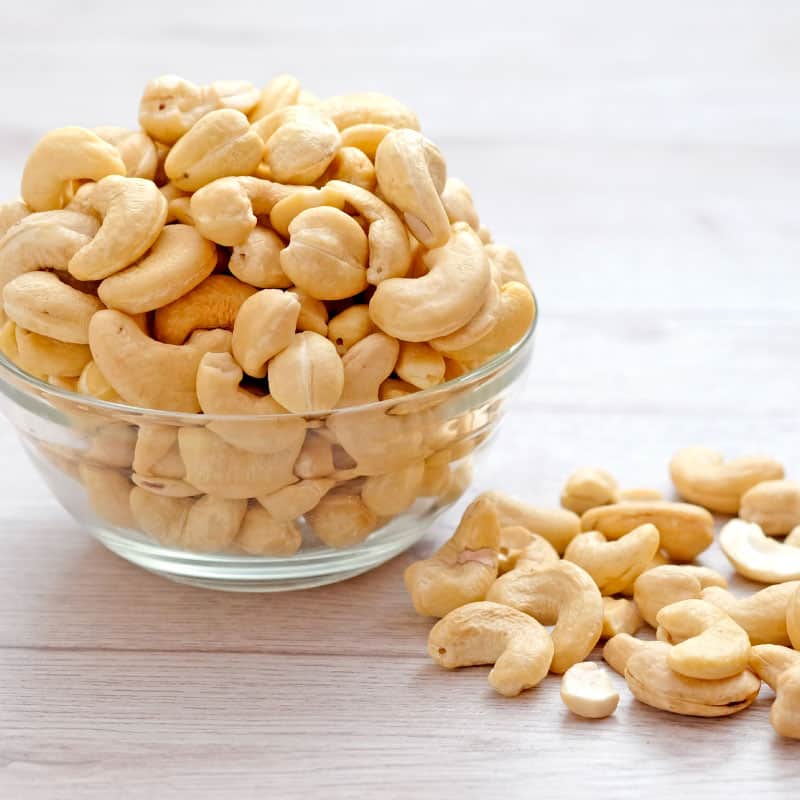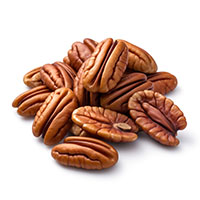Maximizing Walnut Purity: A Guide to Optical Sorting Machines
From shell fragments and septa to mold and shriveled kernels, ensuring product purity is a labor-intensive and imperfect process when done manually. This is where advanced inspection technology becomes essential. A high-performance walnuts optical sorting machine is no longer a luxury—it is a critical component for any competitive processor looking to enhance food safety, maximize yield, and protect their brand reputation.
Challenge of Sorting Walnuts
Walnuts are one of the most challenging nuts to process. Their delicate, brittle kernels can be easily damaged by rough handling, leading to product loss. Furthermore, the defects themselves are complex. Contaminants like shell pieces or woody debris can share a similar color and density to the nutmeat itself, making simple sorting ineffective.
Key challenges include:
·Fragility: The delicate nature of walnut halves and pieces requires gentle handling to prevent breakage and preserve the product's premium value.
·Foreign Material: Removing all non-walnut material, including shells, leaves, wood debris, stones, and even tiny impurities like hair or plastic ties, is paramount.
·Defect Variety: Defects can range from obvious color issues (black, rotten, or green nuts) to subtle quality problems like shriveled kernels, insect damage, mold, or shrinkage.
· Internal Issues: Some of the most critical defects, such as mold or decay, may be internal and not visible on the surface.
What Can a Walnut Optical Sorter Detect?
Modern optical sorters, especially those powered by artificial intelligence, go far beyond simple color sorting. They use a combination of multi-spectral cameras and sensors to analyze products based on color, shape, and even material structure.
A comprehensive walnut sorting system is designed to identify and reject a vast array of issues:
· Foreign Contaminants: Shells, leaves, wood debris, insects, plastic, glass, and metal.
· Tiny Impurities: Advanced systems can detect and remove fine contaminants like hair, feathers, and threads.
· Quality & Defective Products: This includes empty or cracked shells, wormholes, shrinkage, and mold.
·Color & Shape Defects: Shriveled, wrinkled, or damaged kernels, as well as skin residues.
Sorting Solutions for Every Walnut Variety
Different types of walnuts present unique sorting requirements. Modern sorting machines utilize flexible AI-driven parameters to adapt to various product streams.
· English Walnuts: Optical sorting removes broken, discolored, or overripe walnuts, ensuring uniform size and quality.
· Black Walnuts: Sorting ensures that only intact, clean, and ripe walnuts are packaged, removing any underdeveloped or defective nuts.
This same technology is applied to sort walnuts in all forms, from in-shell nuts to halves, pieces, and granules, ensuring a consistent, high-quality final product.
The Technology Driving Modern Walnut Sorting
RaymanTech’s solutions exemplify the technological advancements in this field. Instead of relying on a single detection method, they combine multiple technologies for a whole chain solution.
1. AI-Powered Vision: At the core of the system is an AI algorithm. This AI is trained to recognize the "ideal" walnut, allowing it to detect subtle irregularities in color, shape, and texture that traditional sorters would miss. This technology is essential for identifying defects like mold, insect damage, and shriveled kernels.
2. Belt & Chute Sorters: RaymanTech offers both chute and belt sorters to match the product's needs.
· The AI Medium Speed Optical Sorter is a belt sorter specifically designed for fragile products, making it ideal for delicate nut kernels like walnuts, almonds, and cashews. Its gentle handling minimizes product breakage.
· The AI Standard Optical Sorter and Multifunctional Chute Color Sorter are built for high-capacity processing of granular materials like nuts, seeds, and beans, capable of handling both dry and wet materials.
3. Durable & Hygienic Design: Processing environments can be harsh. RaymanTech systems are built with high IP ratings, up to IP69K, making them durable, easy to clean, and suitable for wet or high-dust environments.
Why Invest in Optical Sorting?
Implementing an advanced optical sorting system for walnuts is a direct investment in profitability and brand security.
· Reduce Labor Dependence: These systems automate the sorting process, replacing inconsistent and costly manual labor.
· Increase Efficiency: High-capacity models process large volumes quickly, streamlining the entire production workflow.
· Maximize Yield: By accurately sorting good products from bad, systems like the AI Standard Double Layer Optical Sorter can perform a second-stage sorting on the rejects to recover any lost quality, minimizing material loss.
·Reinforce Brand Reputation: Ultimately, delivering a cleaner, safer, and more consistent product builds consumer trust and significantly reduces the risk of damaging (and expensive) product recalls.
Secure Your Walnut Quality with RaymanTech
From raw material sorting to final package inspection, RaymanTech provides intelligent, end-to-end solutions for the nut industry. By leveraging AI-driven multi-sensor technology, these optical sorting and X-ray systems ensure that your final product is free of contaminants and defects, safeguarding your quality from farm to table.
FAQ
How does a walnut optical sorting machine work? An optical sorter works by feeding walnuts, either in-shell or as kernels, onto a high-speed conveyor belt or a free-fall chute. As the walnuts pass through an inspection zone, they are scanned by high-resolution cameras (using visible light, lasers, or infrared). An image processing system, often powered by AI, analyzes each nut in milliseconds. It compares the nut to pre-set quality standards for color, shape, and texture. If a nut is identified as defective or as foreign material, the system actuates a precise blast of compressed air from an ejector, which removes the unwanted item from the main product stream.
What specific defects can an optical sorter remove from walnuts? Advanced optical sorters can detect a wide range of defects in both in-shell and shelled walnuts. This includes:
Foreign Materials: Shell fragments, septa (membrane), wood, sticks, stones, and plastic.
Color Defects: Discolored, dark, black, or moldy kernels.
Shape & Texture Defects: Shriveled, broken, insect-damaged, or immature kernels.
Subtle Contaminants: Some AI-driven systems can even detect and remove fine materials like hair and threads.
_1.png)

Related Articles
-
 Nov-11-2025
Nov-11-2025Cashew Optical Sorting Solutions
Cashew sorting solutions combine AI-powered optical sorters and AI X-ray inspection systems to deliver premium-quality nuts. Optical sorters detect and remove damaged, broken, discolored, or over-roasted cashews based on color, shape, and texture. X-ray systems identify internal defects and foreign contaminants such as stones, metal, or empty shells. Together, these technologies ensure food safety, consistent quality, and maximum yield. Leading brands like RaymanTech set industry standards with integrated, high-precision sorting systems.learn more -
 Nov-11-2025
Nov-11-2025Pecan Processing: AI Optical Sorters & X-Ray Inspection for Premium Quality Nuts
Pecan processors now rely on AI-powered optical sorters and X-ray inspection systems to detect and remove defects, contaminants, and foreign materials with unmatched precision—ensuring superior quality from in-shell to shelled nuts. These advanced technologies eliminate broken shells, mold, insect damage, stones, metal, and more, while minimizing recalls and meeting rigorous food safety standards.learn more

Quick Links
Contact
Tel: 717-490-1513
Add: 1050 Kreider Drive -
Suite 500, Middletown,
PA 17057







